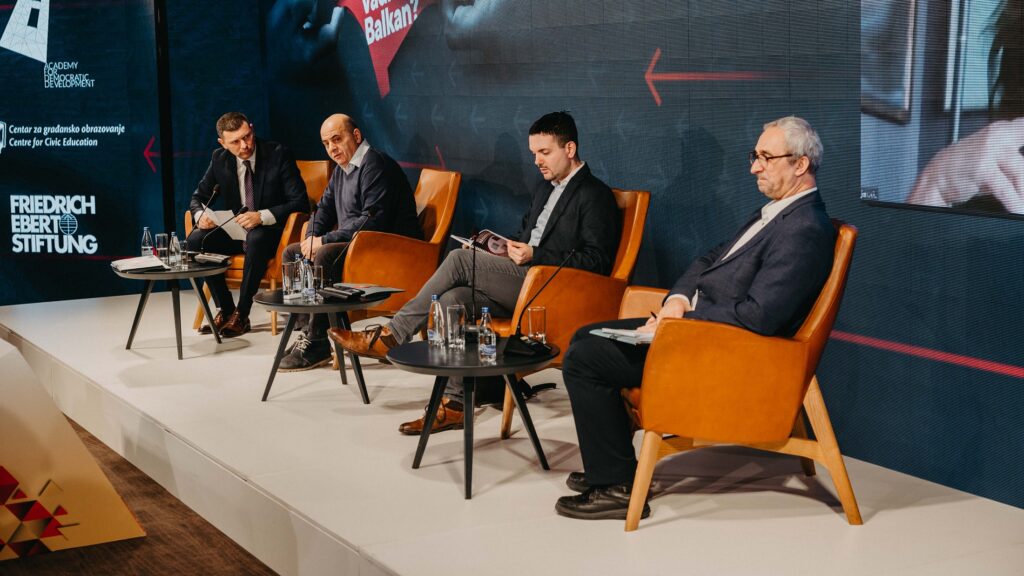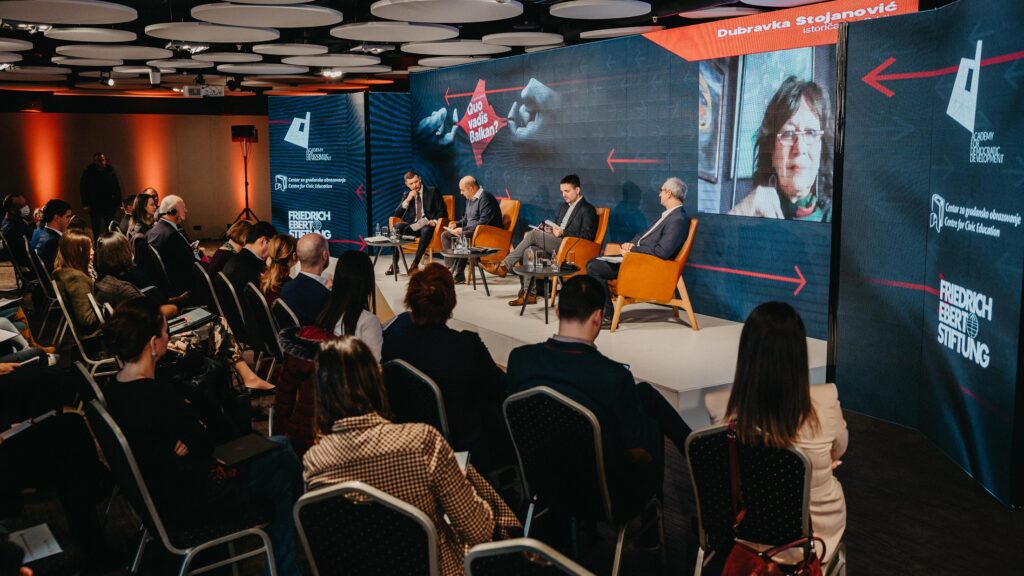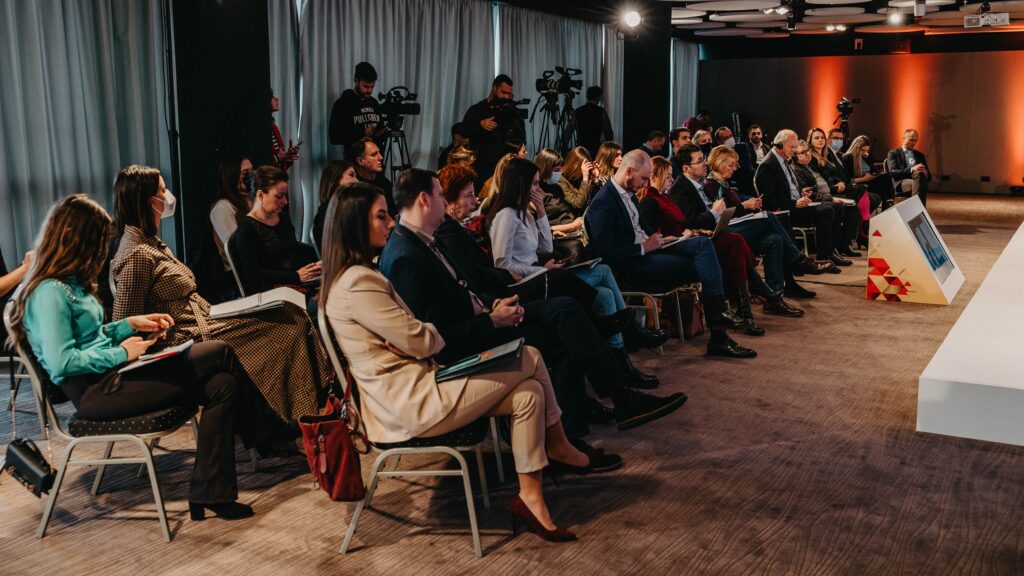“The marriage of politics and historiography is always a bad marriage for both sides. The longer historiography is politicized, it is not historiography, and while politics is impregnated with history and interpretation of history it is not genuine politics,” was the key message from the panel “Does history belong to the past?”, during the second day of the Podgorica Plenum – Quo Vadis Balkan? organised by the Centre for Civic Education (CCE), the Regional Academy for the Development of Democracy (ADD) and the Friedrich Ebert Stiftung (FES).
Adnan Prekić, a historian from Montenegro, assesses that in Montenegro we have a strong need to justify the current political processes in the past, which, along with the position that only those attitudes that have “historical conviction” are correct, reinforces the right-wing narrative. “In Montenegro, it is a part of political folklore, and it has gained a completely new dimension since 2014, when the political scene began to radicalize and polarize,” Prekić believes. “There are many parallels in recent years with the AB revolution. I refer to the narrative on social injustice, alleged vulnerability, denationalized elites, burned and devastated country… It turned out that it was an organized show, that is, a clearly directed and controlled political process that caused irreparable damage to Montenegro both in 1990 and today,” he said.
Ivo Goldstein, a historian from Croatia, stated that all societies are to some extent determined by the past. “An attack on liberal democratic societies imposes or suggests a general liberal democratic response, emphasizes the need to promote progress, protect human rights, spread freedoms, and it is absolutely critical of fascist tendencies in society and everything that goes with it,” he said.
“In less democratic societies, such as, unfortunately, most or almost all of them in this region, politics in an inappropriate way interferes with historiography, historical explanations, takes certain facts from history and manipulates them, mystifies them and adapts them to their needs, and that marriage between history and historiography, on the one hand, and politics, on the other, is bad, as we witness every day“, Goldstein pointed out.
Dubravka Stojanović, a historian from Serbia, believes that history as a science of the present raises the question of the past and forces us to go back to the past to find solutions. “And that is what is called the revision of science. Unlike revisionism, which, ideologically conditioned, manipulates the past and throws out certain elements and fabricates others. And that is very dangerous when it turns into history teaching and comes to young people who are then right-wing,” she said. Stojanović said that changing history textbooks in the midst of war and crisis indicates to what extent states prioritize their historical legitimacy, to position wars in a logical place as the culmination of the struggle for the nation’s freedom.
“Socialist Yugoslavia was a state with a concept of the future. What the nationalists made in the 90s are states without a future, without offering a concept and hope, as can be seen from the demographic data and the number of those who left. When you don’t have a vision of the future, you don’t have a vision of the present. ‘When you don’t have a present, you offer a better past’ describes the best the situation and one of the reasons why Serbs have entered a terminal phase that is dramatic and painful – the revanchism phase,” she concluded.
“The past is the past and we as historians must not agree to create a better picture of the past than it really was. If we create it better, we fall into the field of revisionism and subordinate the past to modern political agendas and influences”, pointed out Husnija Kamberović, a historian from Bosnia and Herzegovina. He considers that it is the task of history and historians to critically interpret the past, and not to live in it.
“We need to accept that the past is something that happened a long time ago and that we can learn something from it only if we accept it as it is – finished, while beautifying it will not contribute only to the development of historical science and our understanding of the past, but also the development to our societies,” he stated.
Milivoj Bešlin, a historian from Serbia, believes that history always needs a contemporary context, because without it there would be no need to rewrite it. “In that sense, I do not think we are loyal to the past because the past legitimizes, while political structures will always want to use and abuse the past in order to establish themselves as firm as possible in it,“ he pointed out.
“Panels like this are very important because we are all aware of the role of historical science in producing nationalist narratives in the region and generating intolerance. That is why historical science should be returned to self-awareness and formed as a critical discipline that will serve progressive goals, and not support nationalism, antagonism and tensions, as is the case today. Every ideology, especially nationalistic, wants to base itself as deeply and thoroughly as possible in the past. Thus, they are abusing history and reducing it to a kind of servant of political structures, and the task of us historians is not to allow that and to remove history from all those political processes that serve to produce intolerance,” Bešlin concluded.
“Podgorica Plenum – Quo Vadis Balkans?” aims to strengthen the progressive forces in the region through gatherings and talks on modalities to respond to the growing right-wing extremism in the region. The plenum brought together participants from political parties, NGOs, the media, institutions, academia and the diplomatic corps, in compliance with epidemiological measures.
Maja Marinović, Programme associate



